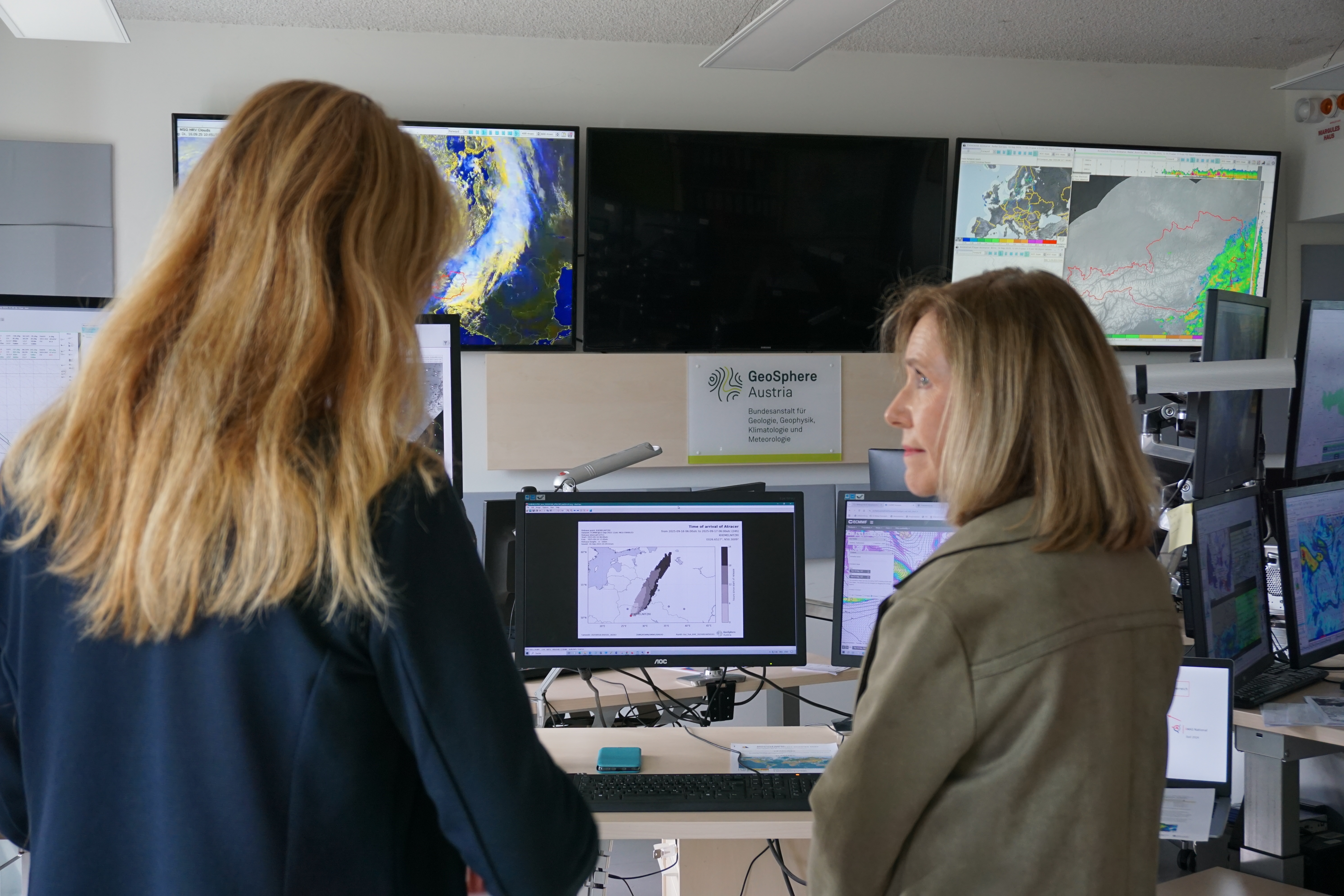Secretary-General of the World Meteorological Organisation visits Vienna
On Tuesday (16 September 2025), Celeste Saulo, Secretary-General of the World Meteorological Organisation (WMO), visited GeoSphere Austria at the Hohe Warte in Vienna. The WMO is a specialised agency of the United Nations and coordinates global cooperation in the fields of meteorology, hydrology and related geophysical sciences, as well as promoting measures to adapt to climate change and reduce extreme weather events.
‘GeoSphere Austria plays an important role in many areas of the global meteorological community and was one of the first countries to participate in our SOFF programme, which improves forecasting and early warning systems in developing countries, thereby helping to protect lives and infrastructure,’ emphasised Celeste Saulo, Secretary-General of the World Meteorological Organisation (WMO), during her meeting with the Director-General of GeoSphere Austria, Sylvia Bauer-Beck, and Andreas Schaffhauser.
GeoSphere Austria is now working with nine countries on three continents in the SOFF programme (Systematic Observations Financing Facility): South Sudan, Chad, Djibouti, Sierra Leone, Guyana, St Lucia, Dominica, St Vincent and the Grenadines, and Laos.
One topic discussed at the working meeting in Vienna was new methods for issuing warnings. ‘Multi-hazard warnings, i.e. warnings that take several hazards into account, are a strategically important development for us,’ said Andreas Schaffhauser, Scientific Director General of GeoSphere Austria, ‘because we have weather, earthquake and geological departments in-house, for example, we can work very effectively on solutions here. With our AMAS services, Austrian multi-hazard impact-based advice service, we also work very closely with all the major Austrian organisations involved in warnings, such as the State Crisis and Disaster Management Agency, the Civil Protection Agency and the authorities responsible for flood protection, avalanche warnings and air quality, as well as the provincial health authorities.’
Another topic discussed during WMO Secretary-General Celeste Saulo's visit to the Hohe Warte in Vienna was international cooperation on warnings of radioactive releases.
GeoSphere Austria is one of ten Regional Specialised Meteorological Centres for Nuclear Emergency Response Activities (RSMC ERA) worldwide on behalf of the WMO and is primarily responsible for Europe and Africa. If increased radioactivity is measured or an accident occurs at a nuclear power plant, GeoSphere Austria starts calculating where the radioactive cloud is coming from and where it is heading.
Celeste Saulo began her four-year term as Secretary-General of the WMO on 1 January 2024. She was previously Director of the Argentine National Meteorological Service and Vice-President of the WMO. Celeste Saulo is the first woman and the first expert from South America to head the WMO.
The World Meteorological Organisation (WMO) has its roots in Austria. In 1873, at the first International Meteorological Congress in Vienna, it was decided to found the International Meteorological Organisation (IMO) to promote global cooperation. On 23 March 1950, this organisation became the World Meteorological Organisation (WMO), which is based in Geneva and is part of the United Nations (UN). Austria has been a member of the WMO since 1955 and is represented there by GeoSphere Austria.
Translated with DeepL.com (free version)

